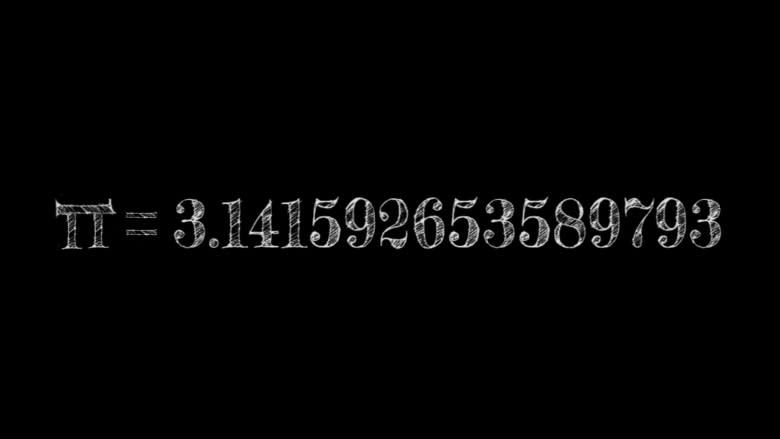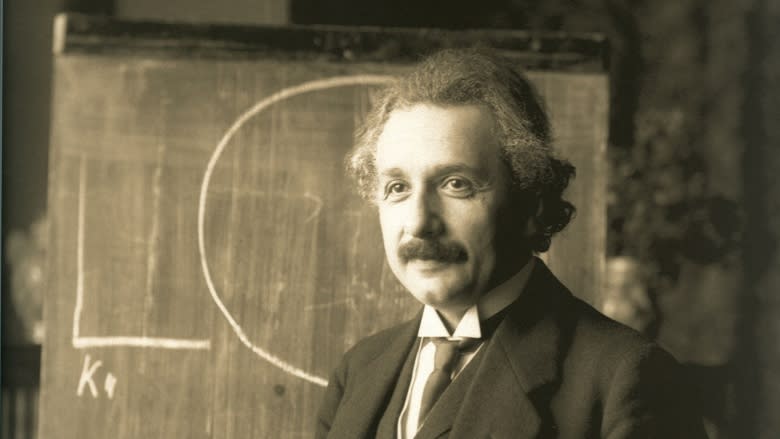Happy Pi Day! What you might not know about the number that never ends
It's not every day the world breaks out desserts to celebrate math, but March 14, or 3.14, is no ordinary day.
That's right, it's International Pi Day.
Even if you're not math savvy, you likely remember learning about pi (π) in math class. It's the ratio of a circle's circumference to its diameter, or 3.14. It's used to calculate the circumference, diameter and area of a circle, among other things.
While the ratio is simplified to 3.14, so far it has been calculated to more than 22 trillion digits. Pi is believed to go on indefinitely.
To help you enjoy the pi-inspired revelry, here are some nifty facts about 3.14.
Albert Einstein
It seems appropriate that March 14 also marks the birthday of renowned theoretical physicist Albert Einstein.
Einstein was born in Germany on March 14, 1879. One of the most celebrated scientists in history, his theories advanced our understanding of the universe. His formula E=mc² — which tells us that mass and energy are related to one another — is one of the most well-known mathematical equations, even if some of us don't completely understand it.
Care for a slice?
People who celebrate Pi Day tend to have some fun with it, eating — you guessed it — pie.
That's because, not only are the two words homonyms (words that sound alike), but 3.14 reflected backwards looks like the word "pie."
Trillions and trillions
While most people think of pi as 3.14, the entire ratio hasn't been calculated. As of November 2016, pi enthusiast (yes, there's such a thing) Peter Trueb's computer calculated pi to 22,459,157,718,361 digits.
And it was no easy feat. He had to build a computer with 24 hard drives, each containing six terabytes of memory. He used a program called y-cruncher, built for that sole purpose.
Head full of pi
According to the Pi World Ranking List, the record for memorizing pi belongs to Suresh Kumar Sharma of India, who memorized 70,030 digits in October 2015, beating out Rajveer Meena, also of India, who memorized it to 70,000 digits in March 2015.
And if you're wondering how long it took Sharma to rhyme off more than 70,000 digits, it was 17 hours and 14 minutes.
In Canada, the record belongs to Chun Wang, who memorized 8,148 digits of it in March 2017.
Digits
There are no occurrences of 123456 in the first million digits of pi. But the first six digits, 314159, appear in that particular order at least six times in the first 10 million decimal places.
A history of pi
The ancient Babylonians calculated pi roughly 4,000 years ago. Though they didn't get it quite right, they were pretty close: 3.125.
Later, an Egyptian scribe named Ahmes wrote in the Rhind Papyrus, an ancient scroll of mathematical problems and equations, the calculation of a circle's area, which gave an approximate value of 3.16.
Mathematician Archimedes, born in Sicily around 287 BC, used the Pythagorean Theorem, a geometric theorem involving triangles, to accurately calculate pi. He was followed by Chinese mathematician Zu Chongzhi, who calculated it to 3.14159292, which is pretty close to today's first eight digits after the decimal point.
It wasn't until the 1700s that the Greek letter π began to be used to represent pi.




